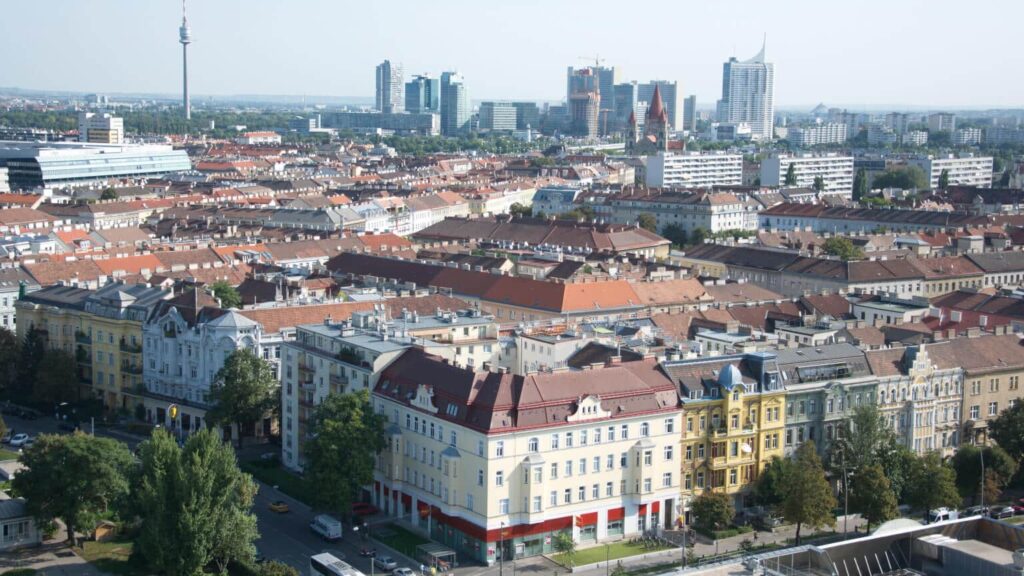Geopolitical tensions top concern for family offices globally, says UBS

George Athanasopoulos, Head Global Family and Institutional Wealth, Co-Head Global Markets
Geopolitics overtook inflation as top concern for the family offices across the world, which were cautious about current markets in the face of an uncertain growth outlook in developed economies, as well as tighter lending conditions and heightened geopolitical tension.
Brands and Business Magazine
Family offices were also increasing their allocations in regions that have been less favoured in the past. While they still have almost half of their assets in North America, over a quarter are planning to increase allocations in Western Europe over the coming five years, and almost a third planning to raise and broaden their allocations in the wider Asia-Pacific region.
These were some of the findings of UBS, the leading global wealth manager, which were announced during the launch of the UBS Global Family Office Report 2023 on Wednesday. The report surveyed 230 single family offices around the world, with an average total net worth of $2.2 billion.
Due to potential inflection points across interest rates, inflation and economic growth, the latest report showed that family offices were planning the biggest shift in strategic asset allocation for several years. Following the end of close-to-zero interest rates, balanced portfolios with active management are returning to favour.
“The biggest turnaround the family offices are planning to make is in developed market fixed income, where after three years of cutting back on bonds, almost four in ten (38 per cent) are planning an increase over the next five years. Fixed income is now the most popular source of diversification, as more than a third (37 per cent) of family offices move to high-quality, short-duration bonds for potential wealth protection, yield, and capital appreciation,” the report said.
At this time, increased fixed income exposure reflects general reallocation from a broad mix of asset classes. Over the next five years, those surveyed still foresee greater allocation to risk assets, with 34 per cent planning increases in emerging market equities following a peak in the US dollar and the reopening of the Chinese economy, it said.
UBS also said that as shown in last year’s report, there continues to be a strong trend among family offices for including alternatives to help diversify a portfolio, but they are refocusing their allocations. Hedge fund allocations have risen to 7 per cent from 4 per cent and in contrast, direct private equity allocations decreased to 9 per cent from 13 per cent.
Family offices also plan to reduce real estate allocations in the coming year. Collectively, this is due to an increased allocation to private equity funds, private debt, and infrastructure.
George Athanasopoulos, Head Global Family and Institutional Wealth, Co-Head Global Markets at UBS, said that the 2023 report showed that it’s the end of an era for low or negative nominal interest rates and the ample liquidity that followed the global financial crisis.
“Against that backdrop, our research shows that family offices are making major changes to ensure they are positioned for growth and success,” Athanasopoulos said.
“While current market and geopolitical trends have prompted a shift to liquid, short-dated fixed income, 66 per cent of family offices still believe that illiquidity boosts returns’ in the long-term and they are looking to further increase allocations to alternatives like hedge funds, private equity funds and private debt to further diversify their private markets allocations,” he added.
North America
According to the report, the main purpose of family offices created in the US is to support the generational wealth transfer (76 per cent). Some 63 per cent have a wealth succession plan in place for family members, but only 38 per cent have created a succession plan for the overall family office. Investment allocation to real estate (21 per cent) and hedge funds (10 per cent) was the highest among global peers. In contrast to other regions, a recession is the greatest concern for US family offices and their cash allocations were the least conservative (7 per cent).
Latin America
Latin America’s family offices had the highest allocation to fixed income (30 per cent). Their allocation to real estate was the lowest (5 per cent) and only a fifth (20 per cent) use hedge funds as a portfolio diversifier. Sixty percent of family offices in Latin America do not invest in decentralised payments or technologies.
Asia-Pacific
Family offices in Asia-Pacific had the highest allocation to equities (37 per cent), and almost half (46 per cent) use hedge funds as a portfolio diversifier. Of those with private equity investments, they also make direct investments more than other regions (31 per cent) and 77 per cent of their private equity investments are invested in technology. From an investment theme perspective, medical devices and health-technology resonates best (76 per cent). Family offices in Asia-Pacific have a home bias, with 51 per cent of assets invested in the region, including Greater China.
Europe excluding Switzerland:
Similarly, the European family offices have allocated 11 per cent of investments to real estate, with 30 per cent planning to increase allocations in the next five years. Some 94 per cent manage strategic asset allocation in-house and 75 per cent agree that illiquidity increases returns. Following digital transformation (79 per cent), automation and robotics is the second most preferred investment theme (75 per cent).
Switzerland
According to the report, the main purpose of family offices created in Switzerland is to support the generational wealth transfer (73 per cent). While 43 per cent have a wealth succession plan in place for family members, only 35 per cent have created a succession plan for the overall family office. Compared to global peers, they have the highest allocation to real estate (18 per cent), cash (13 per cent) and art & antiques (4 per cent), with the lowest allocation to hedge funds (4 per cent).






